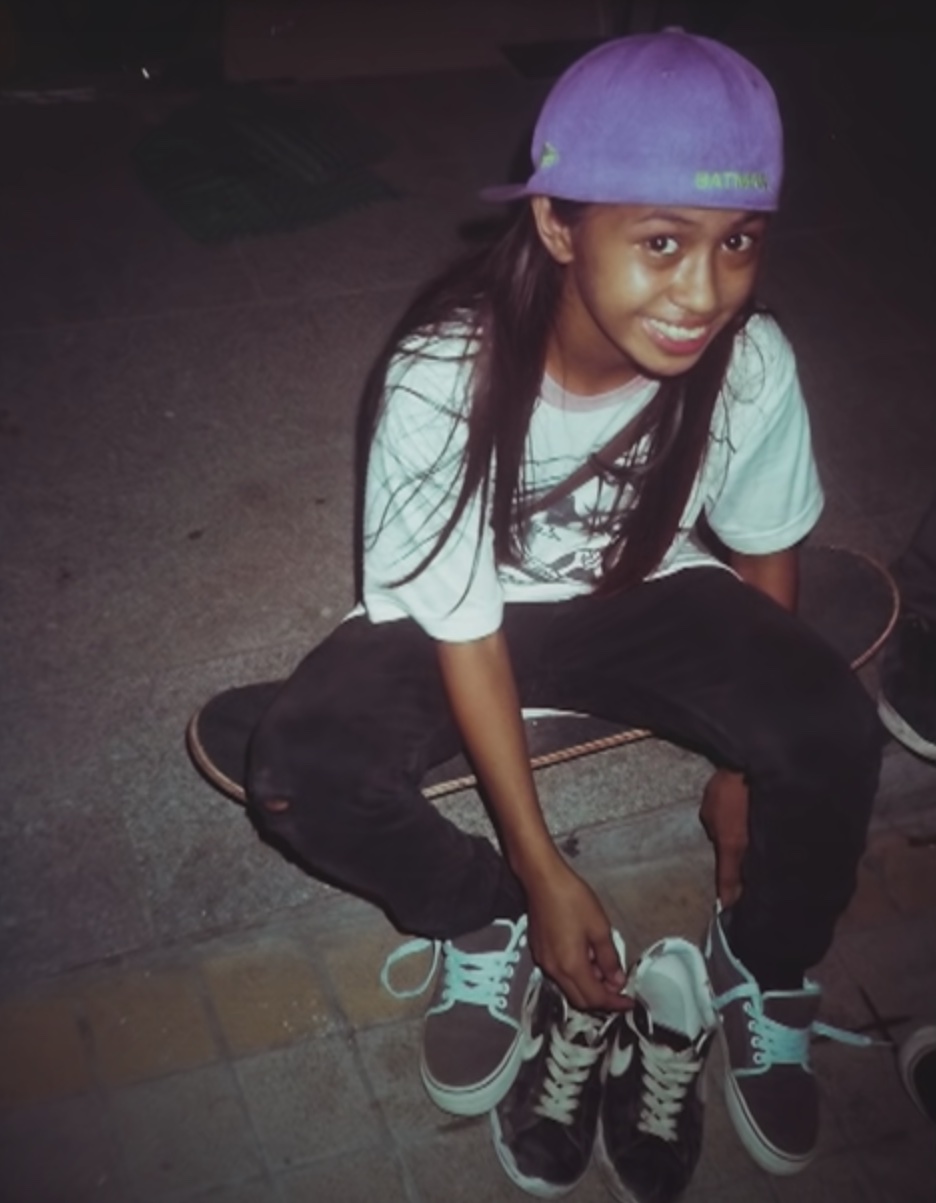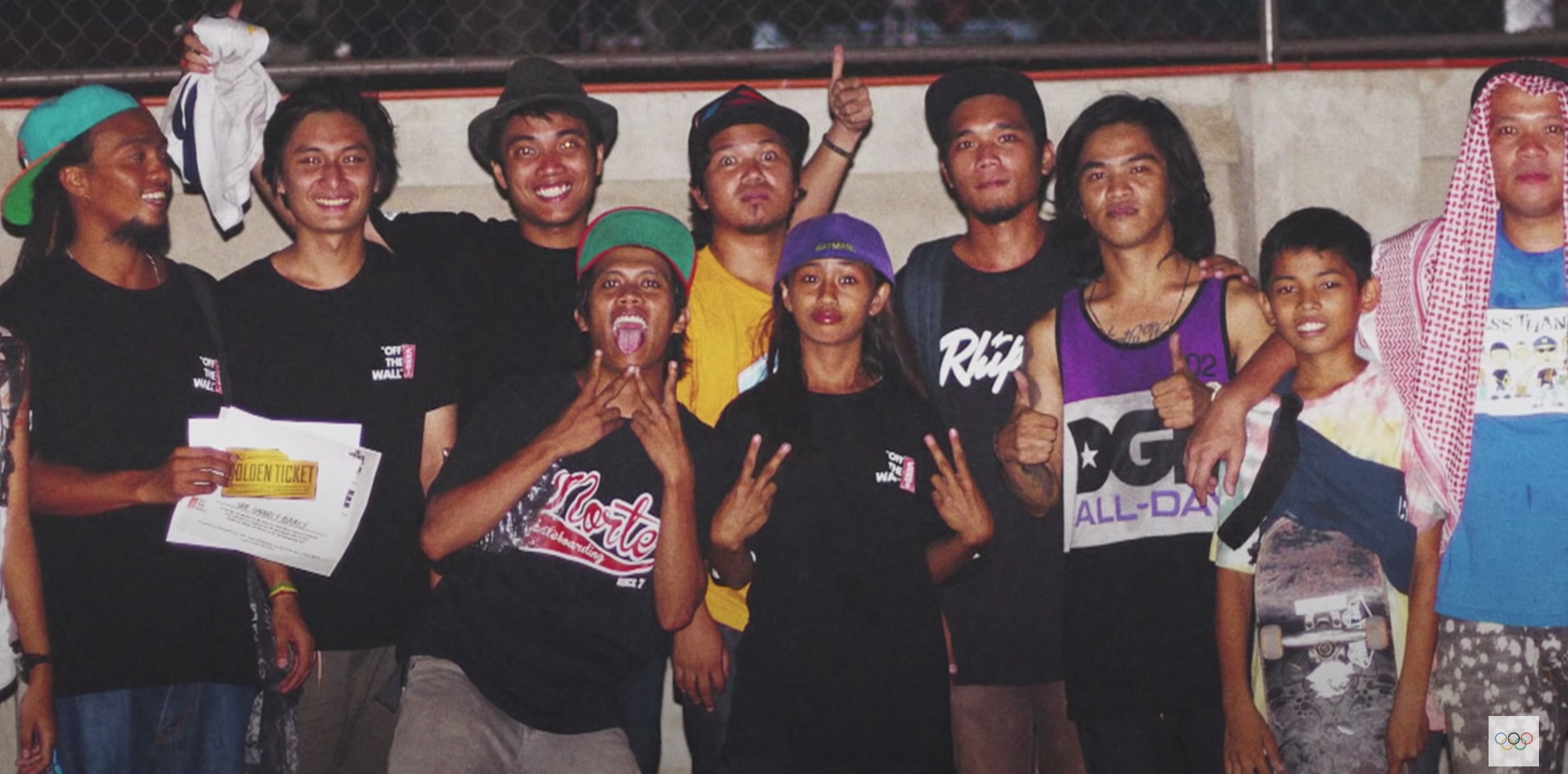Margielyn Didal origin story: How a sparkplug skater from Cebu built something out of nothing heading into the Olympic stage
The 12-year-old Margielyn Didal needed to buy oil for her mother’s kwek-kwek stall.
But destiny beckoned.
Instead of fulfilling the errand, Didal went mingling with skateboarders in Cebu. It took an hour before she got her turn to try out a borrowed skateboard.
"I was so curious about it so I wanted to go and try," Didal, who is now 22 years old, said in a video produced by the Olympic committee.
Skateboarding is the same as life. Don’t be afraid to fail or to fall.
Her mother waited for her in vain near their stall beside a church in Lahug, Cebu. That hour-long detour away from the kwek-kwek stall then extended for days, years, before recently landing on the world's biggest stage — the Tokyo Olympics.
Didal did not win any Olympic medal, landing seventh place after she crashed in her last three tricks. Didal did not win any medal, but she did not lose either. She beamed ear to ear when she fell down, danced like no one's watching, photobombed photos, and won the hearts of Brazilians, among other nationalities, after she struck a charming friendship with Brazilian silver medallist Rayssa Leal. She basically lit up the skatepark by just being there and being in the moment.
But also, she still won because in the first place, she was not even supposed to be there. Skateboarding was not seen and recognized by the public in the Philippines as an actual sport pre-Didal. In fact, police often suspected skateboarders as troublesome street urchins who should be shooed away at least, or even apprehended at most.
"Skateboarding is like nothing in the Philippines. Everytime they see a kid, that’s like that kid has no future," said Didal.
As a virtual no-one aiming to plug in to the budding and male-dominated skateboarding subculture in Cebu sometime in the early 2012, Didal relied on her trump card: the sheer force of her personality.
"She was just like energetic and loud and yo, and like 'Kuya, can i borrow your board?'" Didal's coach Dani Bautista said in the same video.
Through grit and grind, Didal managed to carve her own path, even breaking a number of stereotypes along the way.

“Skateboarding was viewed as done by rebels, punks. No one took us seriously,” said Bautista. “What's expected from a traditional Filipino women is being lady-like and skateboarding is the complete opposite.”
And in just a short amount of time, after bumming some boards from local skaters, Didal started feeling it.
"We all saw it, we were all like, this girl is really good, we should help her out just to keep skating," said Bautista. "Just a few months into skateboarding, she was already better than half of all the boys."
Didal then started joining local competitions the same year she started skateboarding, no matter that it's an all-male category, as she was the only girl riding boards that time.

The year 2018 was a big year for Didal. In May of that year, she participated in the Street League Skateboarding in London, England. As the first Filipino skateboarder to qualify, she advanced to the final round and finished eighth overall. When she got back home, calls for the local government to build an actual skate park gained momentum.
Then in August, 2018, Didal competed in Indonesia at the Asian Games and won the gold medal — a major feat considering that her hometown does not even have an actual skate park.
The following year, Didal won two gold medals at the 2019 Southeast Asian Games held in the Philippines.
"When I ride a skateboard, I feel that I'm being me. It feels natural. There is no right or wrong with skateboarding as long as you are enjoying it, that's good," said Didal.
Didal's foray into the Olympic stage this year coincides as well with the sport's Olympic debut. After a bunch of California surfers in the 1940s first put up boards to ride on pavement during the times when the waves were flat, it took quite a long road as well for the sport to get the Olympic recognition it deserves. For Didal, she is simply happy being in the moment, whether she's on the board, or even down on the floor after a fumbled trick attempt, it's all good.
"Skateboarding is the same as life. Don’t be afraid to fail or to fall. Do it as long as you are happy and enjoying it. And do it in a good way," Didal said.


